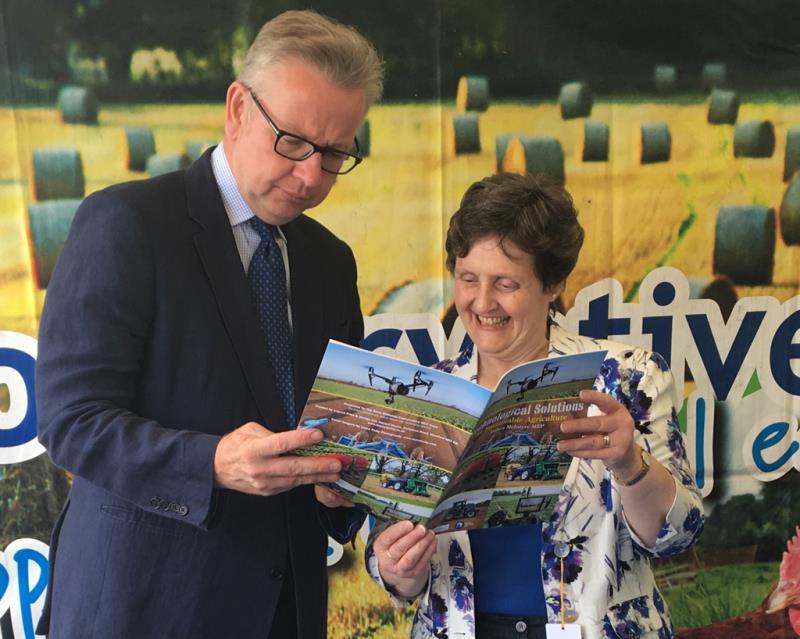MEP Anthea McIntyre, a member of the European Parliament's Agriculture and Rural Development Committee, is publishing the report following extensive consultation with range of experts from the fields of science, academia, horticulture, arable and livestock farming, land management, ecology and politics.
She presented a copy of the report to the new Secretary of State for Environment, Food and Rural Affairs Michael Gove.
Where can technology improve farming practice? Read Technological Solutions for Sustainable Agriculture here.
NFU President Meurig Raymond contributed the report foreword. He wrote: 'Farmers and growers are innovators and experimenters to the core, even if they do not always realise it. More sustainable, efficient, productive and competitive farming systems need access to the best knowledge and tools.
'It is not just innovative ‘kit’ that is needed but also optimum practices and management, tailored to the particular farming system. Farmers need the right skills and support to adopt new technologies and approaches, and the long-term security to apply them to their businesses.'
The publication builds on her parliamentary report, adopted by MEPs last year, and sets out a range of recommendations for putting technology the heart of EU agriculture to boost productivity and protect the environment.
Key evidence was gathered at a round-table conference last month in Ross-on-Wye, Herefordshire, and in reports from John Chinn, chairman of the UK's Centre for Applied Crop Science, and the Vice Chancellor of Harper Adams University, David Llewellyn.
Ms McIntyre, Conservative MEP for the West Midlands, said: "Nothing is more important to mankind's future than agriculture and how we feed an ever-growing number of hungry mouths across the globe. And nothing is more important to agriculture's future than the serious but sensitive application of new technology, chemical and genetic innovation and the harnessing of emerging digital, biological and physical science.
"If we are to feed millions more every year in a way that is ecologically and economically sustainable, we need to square the circle that puts farming efficiency at odds with the environment, public health and bio-diversity. The key to achieving that is technology. Not just more technology but more-effective, more-accessible and more-affordable technology.
"Our widespread consultation highlighted many key opportunities including increased used of robots and drones, driverless tractors, more-accurate application of pesticides and better rural broadband. Deteriorating soil quality and reduced nutritional qualities in food were among the challenges flagged up.
"I believe our recommendations can play a major part in pushing the advance and harnessing of technology to the front of the agriculture and policy agendas."
